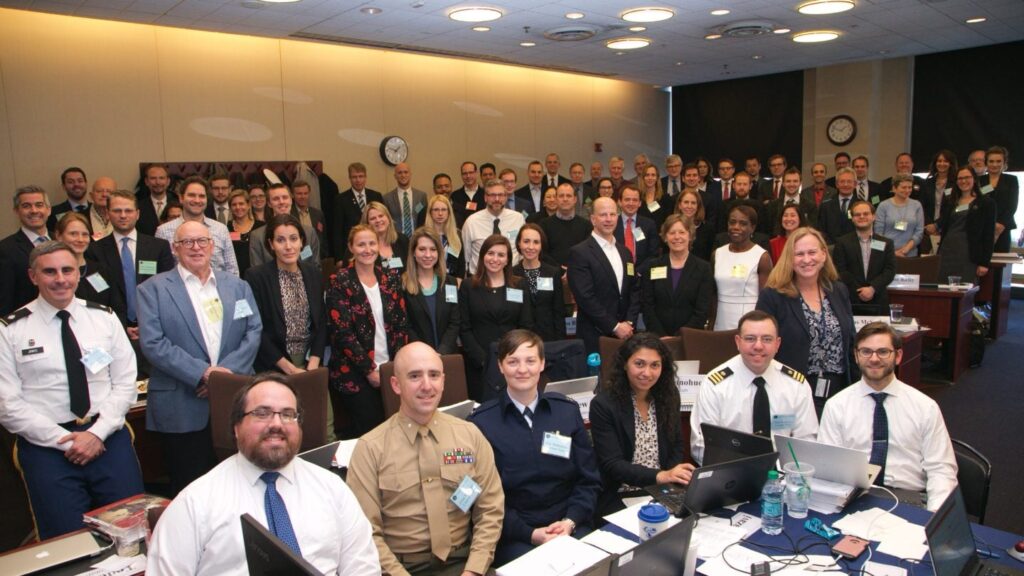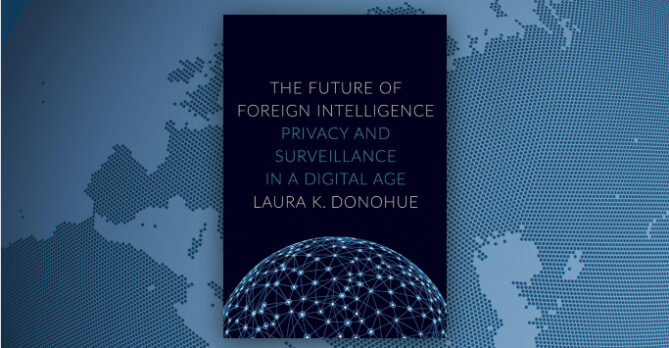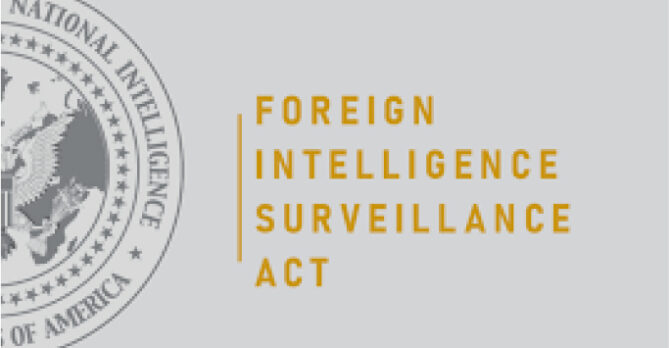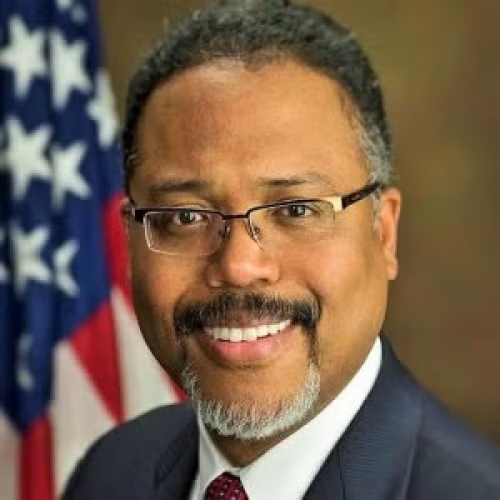What We Do
Upholding and strengthening the legal framework for U.S. intelligence activities.
The Center runs a number of projects, convenes conferences and meetings, designs simulations, and supports scholarship related to the intersection among new and emerging technologies, intelligence and counterintelligence collection, U.S. national security objectives and economic strength, and individual rights.

Intelligence Law Collection
The definitive collection of key resources pertaining to foreign intelligence law and national security.
This repository is meant as a resource for the judiciary, clerks, members of Congress and their staff, lawyers, scholars, journalists, students, companies, members of the public, and anyone with an interest in or need to understand the legal framework for U.S. foreign intelligence collection.
National Security Crisis Law Simulation
For over a decade, Georgetown Law Professor Laura K. Donohue has led the nation’s top national security simulation, where students apply intelligence law and navigate the U.S. security system. After doctrinal lectures, students represent government and industry, responding to hundreds of simulated events via specialized platforms. A team of experts ensures legal accuracy, while students tackle complex challenges in tech-driven domains like the Metaverse, space, AI weapons, and critical infrastructure.

Featured
DATABASE
Foreign Intelligence Law Collection
The definitive collection of key resources pertaining to foreign intelligence law and national security.
Explore
Renowned national security law scholar Laura K. Donohue offers a road map for reining in the national security state’s expansive reach, arguing for a judicial re-evaluation of third party doctrine and statutory reform that will force the executive branch to take privacy seriously, even as Congress provides for the collection of intelligence central to U.S. national security.
Learn More
EVENTS
Shaping the Conversation on Foreign Intelligence
As we enter the next phase of the debate over potential reforms and renewal of the Foreign Intelligence Surveillance Act in 2025, the Center continues to facilitate robust debate on this critical issue. We convene experts, policymakers, legislators, and judges who are writing, interpreting, executing, and analyzing the law. This includes multiple conferences and panels on the origins and evolution of FISA, as well as briefings for members of Congress and judges.

COURSE
Intelligence Law & Oversight
Foreign Intelligence (FI) law as a field is marked by a complex statutory and regulatory framing. Increasingly, it is coming into play in ordinary Article III courts in the United States, as well as in European courts overseas. Simultaneously, new and emerging technologies present fundamental challenges to the traditional FI collection paradigms. This course, accordingly, provides students already broadly familiar with the contours of the national security infrastructure and foreign intelligence collection with the opportunity to do a deep dive with a particular eye towards ways in which technology alters threat vectors and presents new opportunities, and risks, to the foreign intelligence regime.
Explore All Courses
As we enter the next phase of the debate over potential reforms and renewal of the Foreign Intelligence Surveillance Act in 2025, the Center continues to facilitate robust debate on this critical issue. We convene experts, policymakers, legislators, and judges who are writing, interpreting, executing, and analyzing the law. This includes multiple conferences and panels on the origins and evolution of FISA, as well as briefings for members of Congress and judges.
Learn More About Our Social Media Governance Task Force
Our Experts

Laura K. Donohue
Professor of Law, Georgetown Law

Mary McCord
Visiting Professor of Law; Executive Director, Institute for Constitutional Advocacy and Protection

Wayne Chung
Chief Technology Officer, BlueVoyant

Contact
Support Us
Related Focus Area

Emerging Issues, Norms & Institutions
Helping to shape the future of global security and governance.






